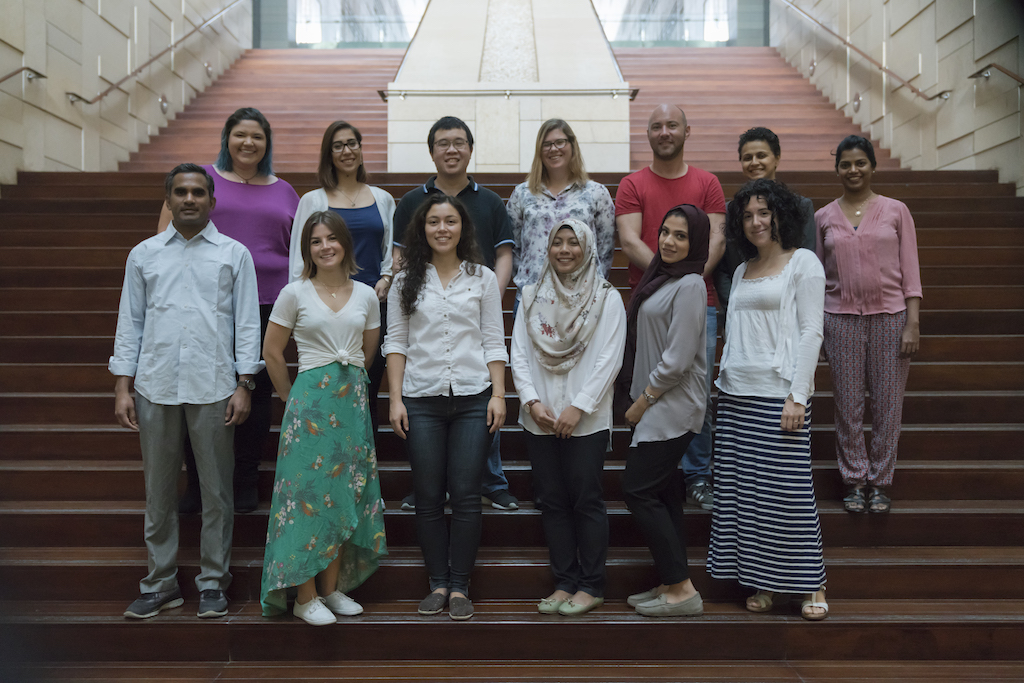Student Report: Conference learning expands beyond the program

The organizing committee (pictured here) was an important part of the University's Red Sea Research Center Open Science Conference, which took place in late October 2017.
Whether you are a seasoned scientist, a new researcher or a student working towards your degree, attending conferences is a normal part of your year and plays a role in advancing your career and broadening your perspectives. This past fall, several KAUST students and postdoctoral fellows found out that lessons can also be learned in organizing conferences when planning the Red Sea Research Center Open Science Conference.
Below are few takeaways postdoctoral fellow Yi Jin Liew and Ph.D. student Maha Cziesielski learned from the experience.
Reflecting on the first RSRC internal, departmental-level conference
The 2017 Red Sea Research Center (RSRC) Open Science Conference, the University's first student- and postdoctoral fellow-organized departmental conference, took place in late October 2017.

The Red Sea Research Center Open Science Conference, the University's first student- and postdoctoral fellow-organized departmental conference, took place in late October 2017 and featured international speakers and attendees.
The committee organized a two-hour workshop that highlighted in-Kingdom job opportunities, featuring eight external panelists across two sessions. The first session focused on how students could make themselves more desirable for the jobs they sought, while the second was about the opportunities available in-Kingdom.

Terry Hughes, distinguished professor and director of the ARC Centre of Excellence for Coral Reef Studies at James Cook University, speaks during the University's Red Sea Research Center Open Science Conference in late October 2017.

Attendees at the University's Red Sea Research Center Open Science Conference in October 2017 enjoyed lunch with conference keynote speakers as part of the event.
Takeaways for the next conference
As with any new experience, there were things that could be improved. Upon introspection, we felt that a formalized hierarchy to streamline planning is essential for events of such a scale. This is especially pertinent when the next departmental seminar expands in scope. Good leadership and accountability is key in staging successful events.

KAUST Red Sea Research Center Ph.D. student Maha Cziesielski speaks during the University's Red Sea Research Center Open Science Conference in late October 2017. Cziesielski was also a co-organizer of the event.

Dr. Suad Juffali, a philanthropist, gives a welcome speech during the Red Sea Research Center Open Science Conference in late October 2017.
We would like to thank our faculty advisor Professor Carlos Duarte, director of the RSRC and theTarek Ahmed Juffali research chair in Red Sea ecology, for his guidance in shaping the overall direction of the conference. We also owe Christine Nelson a debt of gratitude for simplifying the administrative work done to run the conference. Finally, we'd like to thank the organizing committee and attendees for investing their time and sharing their passions.

